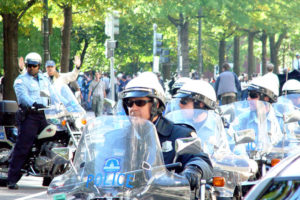Earlier this month, civil rights lawsuits filed against New Mexico law enforcement officers after they conducted highly invasive body cavity searches made headlines. Two men, who were each pulled over for traffic violations, were forced to undergo body cavity searches after a drug dog alerted to their cars. One of the men was subjected to a colonoscopy and x-rays so that the police could search for contraband.
Needless to say, these cases raise serious questions about the constitutionality of the police officers’ conduct in these instances. They also led many to wonder when police can lawfully conduct a body cavity search. This post will discuss the circumstances under which police may be able to conduct a body cavity search of a suspect.
A body cavity search can be a humiliating experience. If you were subjected to a body cavity search, contact an experienced criminal defense attorney to discuss your rights. You may be eligible to file a civil rights lawsuit against the police officers who conducted the search.
Arrested?
Call us now: 646-742-9800
When Can Police Force a Suspect to Undergo a Body Cavity Search?
In New York, there are three basic circumstances under which police can conduct a body cavity search. If you have been subjected to a search that does not clearly fall under one of these scenarios, then it’s very possible your rights may have been violated.
Following is an overview of the laws pertaining to body cavity searches.
1. Police can conduct a body cavity search with a search warrant.
If police go through the proper procedures to obtain a search warrant that authorize a body cavity search, the search will be presumed legal.
When a court considers whether to issue a warrant that authorizes a body cavity search, the judge typically weighs:
- The reasonableness of invading a suspect’s body to search for evidence of a crime, and
- The state’s interest in obtaining evidence of the crime.
Because body cavity searches are so invasive, the government is typically required to prove that it has a very high interest in obtaining evidence of the crime.
Even when police have obtained a warrant to conduct a body cavity search, some federal courts have found that body cavity searches are unreasonable if there are less invasive means of finding that evidence.
In United States v. Gray, an appellate court found that a body cavity search of a suspect in an effort to find crack cocaine was unreasonable. But because officers were relying in good faith on a search warrant issued by a court, the court declined to suppress evidence obtained from the search in the suspect’s subsequent criminal trial.
There is an exception to the warrant requirement of the Fourth Amendment known as the “good faith” exception. This means that police may legally be allowed to perform a body cavity search on a suspect if they act on a good faith belief that a valid warrant has been issued by a court. This exception applies even if the search warrant is later determined to be invalid.
2. Police can conduct a body cavity search at the border or at an airport.
There is another exception to the Fourth Amendment’s warrant requirement known as the border search exception. This exception allows law enforcement officers to conduct searches (even body cavity searches) at international borders and airports without probable cause.
This rationale is based on the government’s interest in protecting national security at borders and airports. These types of searches are very common in New York at JFK Airport.
3. Police can conduct a body cavity search of a suspect after he or she is incarcerated.
There is another exception to the Fourth Amendment’s warrant requirement that applies to people who are incarcerated. In jails and prisons, law enforcement officers have greater latitude to perform routine strip searches and body cavity searches of arrestees and inmates.
In Florence v. County of Burlington, the Supreme Court stated that even though these searches are invasive, they are justified by the need to prevent weapons and contraband from entering correctional facilities.
If you are concerned that police officers may have violated your constitutional rights by conducting a body cavity search, contact an experienced criminal defense attorney today.
Have you been subjected to a body cavity search in New York?
Your constitutional rights may have been violated. For a free, confidential consultation with a criminal defense lawyer serving New York City and the surrounding areas, contact us or call us today: (646) 742-9800
Image Courtesy of Flickr User erix!



